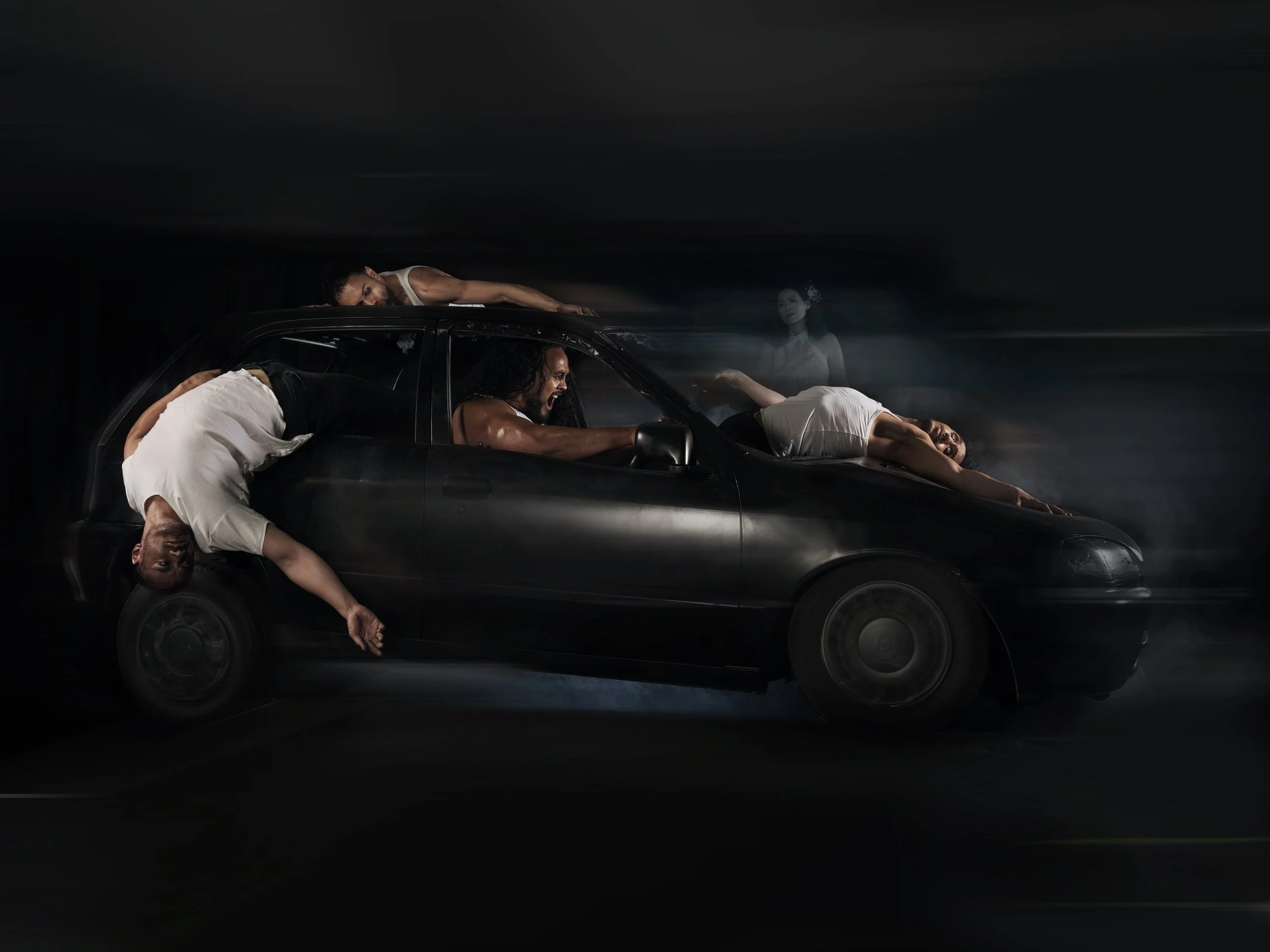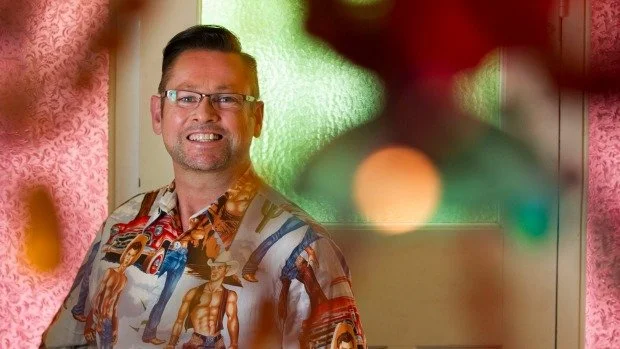(m)Orpheus: grief, art and truth
Composer Gareth Farr calls the 10-piece ensemble he’s used for the dance-opera (m)Orpheus his “Frank Zappa band”. To a string quartet - “to support the singers” – he’s added trumpet, trombone (doubling euphonium), guitar, clarinet (doubling saxophone) and two percussionists playing on one marimba. Most of these instruments weren’t seen on the concert stage when Christoph Gluck composed his Orpheus and Eurydice.
Gluck’s 18th century masterpiece tells the story of Orpheus’s attempt to rescue his wife Eurydice from the underworld, and the condition, imposed by the gods, that he must lead her out without turning back to look at her.
Composer Gareth Farr
“I wanted to subvert Gluck’s music…into a good place.”
Image credit: Ross Giblin
When Farr was approached by NZ Opera to prepare the music for a “re-invention” of the work, his first instinct was to decline. “I’m not an arranger, I’m a composer.” And then, he tells me, he thought “if I say yes, I’m going to have to make it really weird. So, my entire reason for agreeing in the first place was to be subversive. I wanted to subvert this piece of music - into a good place.”
That subversive intention seems to have been perfectly in tune with that of Neil Ieremia, director and choreographer for the acclaimed Black Grace Dance Company, NZ Opera’s partner in the production now called (m)Orpheus. Ieremia also apparently took some persuading to take on the project but found a way to “reimagine” the work by combining the original tragic Greek myth with Pasifika story-telling, using song, dance, ceremony and cultural traditions. The highly-anticipated production opens in Auckland this week and Wellington later this month.
Director and choreographer Neil Ieremia of Black Grace Dance Company
…reimagining Gluck’s dance-opera with Pasifika story-telling
Photo credit: Jinki Cambronero
Marc Taddei is conductor for the production, which was initially the brainchild of NZ Opera’s former General Director Thomas de Mallet Burgess. De Mallet Burgess was at times a controversial figure in the opera scene of Aotearoa, but Taddei believes he has a genius for combining creative artists to try out new ideas.
“And Neil Ieremia is absolutely fabulous,” Taddei says, from the rehearsal room. “There’s a great Baroque tradition of dance in opera, and collaborating with Black Grace is a huge success, in my view. Neil incorporates the chorus in the dance as well. There’s movement in everything, everywhere, the way he combines the singers with the professional dancers – with a lot of different body types - is exquisitely wrought.”
Conductor Marc Taddei
“…it’s a very dynamic production, there’s movement everywhere.”
Image credit: Becky Nunes
The full cast, including Black Grace dancers and eight-voice chorus, is Pasifika and Māori. Principal roles are baritone Samson Setu (Sāmoa) as Orpheus, and sopranos Deborah Wai Kapohe (Te Ātihaunui-a-Māhaki, Ngāti Rua) singing Eurydice and Madison Nonoa (Sāmoa, Niue) as Amor, god of love. The opera will be largely sung in English with opening and closing choruses in Sāmoan.
Gluck himself, and his librettist Raniero di Calzabigi, composed Orfeo et Euridice with the intention to reform opera, and the work was revised more than once in his lifetime. “This is a very dynamic production”, Taddei tells me. “It’s not about the story so much as all around Gluck’s idea of purifying the art of opera.”
Gluck’s reforming zeal for the art form was to ensure it met his desire for music to be “the language of humanity”. Farr thinks Gluck might be turning in his grave at the way his piece has “morphed” in this production – but perhaps with delight rather than horror. To describe his own delight in (m)Orpheus, Taddei offers me a quote from the translation of the work’s original libretto: “Noble poet, you have transmuted grief into art and art into truth.”
NZ Opera and Black Grace Dance Company (m)Orpheus by Christoph Gluck with re-orchestration by Gareth Farr, Neil Ieremia (director and choreographer), Marc Taddei (conductor), Tracy Grant Lord (designer), Jacqueline Coats (assistant director) and with musicians from Auckland Philharmonia Orchestra and Orchestra Wellington.
6-10 September at ASB Waterfront Theatre in Auckland, then 20-23 September at The Opera House Wellington. More information and tickets here.




